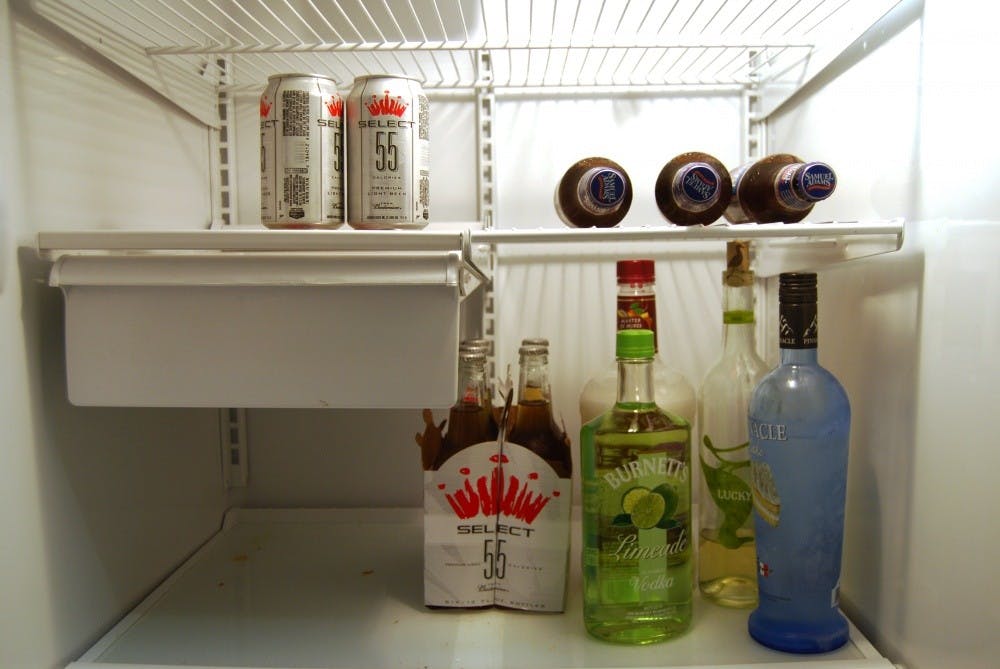With the pressure on college students to drink alcohol while also remaining thin, many now trade dinner for a beer or two, sparking concerns regarding the severity of this problem.
A new condition, often nicknamed drunkorexia, is proving to have health risks for students who intentionally skip meals to save calories for drinking.
One in five students follow this trend, and reasons for drinking instead of eating include controlling their weight, saving money and getting drunk more quickly, according to a recent study conducted by the University of Missouri.
While these reasons may seem appealing to students, not eating before a night of drinking can lead to more negative consequences than the positive outcomes students often desire, said senior Kelly Little, SPARKS Team Coordinator at Elon University.
"If you don't eat before you drink then you don't have anything in your stomach to combat the alcohol," Little said. "Your blood alcohol content (BAC) increases when the alcohol seeps into your blood system, and there's nothing to slow that process if you haven't eaten."
Although the issue is becoming increasingly serious, Little said the condition isn't something that can be diagnosed.
"I think it's an issue, but I don't think it's a disorder necessarily," she said. "This is combining a disease with an action because the action is choosing not to eat and the disease aspect is more body image related."
Sophomore Michele Guthrie also thinks the issue is related to body image and said it should be dealt with just as an eating disorder would be, even though many would argue that it isn't a disorder.
"It's a problem, and in order to fix it people need to realize that it begins with the whole psychological self-image aspect, even if it's not that severe," Guthrie said. "Women are still resorting to unhealthy measures to improve their body weight."
While research from the University of Missouri shows women were found to be three times more likely to practice this condition than men, Little said men should still be taken into consideration. Self-esteem issues aren't limited to females, she said.
"I definitely think it's important to include men," she said. "I think that educating people about how to drink safely is important also, as well as addressing body image issues (to all genders), even though it can be taboo."
Guthrie said making people aware that this problem exists at all is important because she had never considered it to be as serious as it has become.
"I have never consciously thought about this problem, so making people aware of the dangerous side effects of this condition would be a step in the right direction," Guthrie said.
SPARKS is working to address the issue of skipping meals before drinking by analyzing statistics and incorporating this information into presentations on campus, according to Little.
"We talk about the best foods to eat before you drink, which are protein foods, even though a lot of people tend to think it's carbohydrates," she said. "We also list resources and counselors to talk to for discussing body imageconcerns, which is what this all often relates back to."
In the meantime, Little said the public should work on portraying the issue appropriately, and the term "drunkorexia" gives the wrong impression because it's insensitive to those with serious issues like anorexia.
"I think it should be portrayed as a personal choice and a personal issue," she said. "I think the people who are dealing with it are the people who should be dealing with it, not the people who are removed from the issue"


